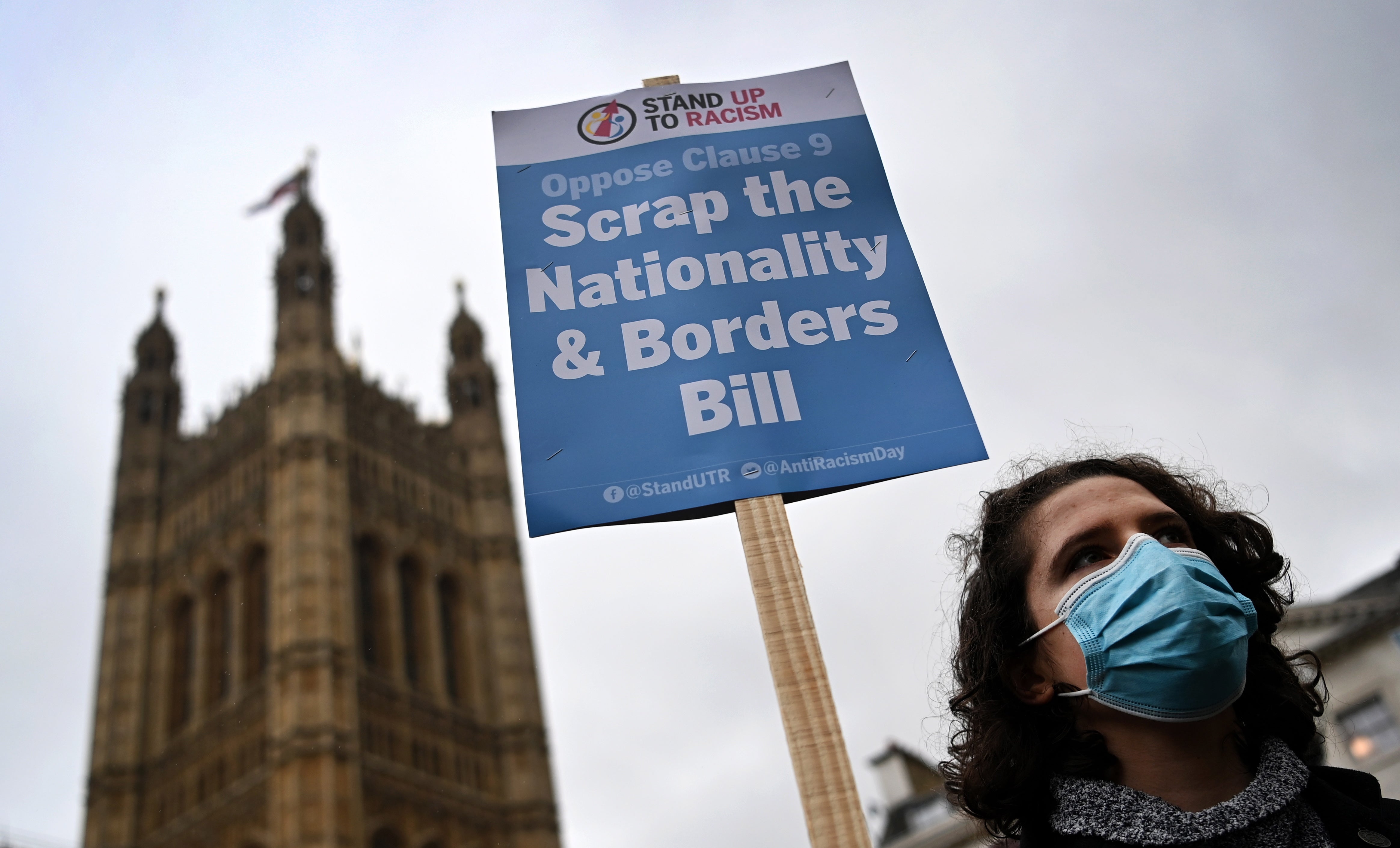‘Trauma deadlines’ for trafficking victims would have stopped me seeking help
Part 5 of the Nationality and Borders Bill will only hurt those who need protection most

Your support helps us to tell the story
From reproductive rights to climate change to Big Tech, The Independent is on the ground when the story is developing. Whether it's investigating the financials of Elon Musk's pro-Trump PAC or producing our latest documentary, 'The A Word', which shines a light on the American women fighting for reproductive rights, we know how important it is to parse out the facts from the messaging.
At such a critical moment in US history, we need reporters on the ground. Your donation allows us to keep sending journalists to speak to both sides of the story.
The Independent is trusted by Americans across the entire political spectrum. And unlike many other quality news outlets, we choose not to lock Americans out of our reporting and analysis with paywalls. We believe quality journalism should be available to everyone, paid for by those who can afford it.
Your support makes all the difference.Aged 13, I was groomed. Like many other survivors of child sexual exploitation, I started pushing away concerned professionals and becoming closer to the adults who would go on to harm me.
The traffickers’ abuse escalated each year until I neared my 18th birthday and was being sexually and criminally exploited routinely. Even at the height of their abuse, I still could not understand why people on the outside were worried. I was brainwashed.
Eventually, you believe the physical attacks and sexual assaults will never stop, so you rationalise the conditions as “normal” just to get through each day. I had to unlearn survival thinking; it cannot be eradicated overnight. Yet, professionals were not always patient as I struggled to provide detailed accounts of the abuse I had suffered. I was often described in write-ups as “disengaging”. They did not see the bigger picture.
In my case, my abusers told me no one would believe me if I spoke out. I had been cut off from support, lacked trust in the authorities, and still felt trauma bonds with my perpetrators after years of manipulation. I was at a crisis point when I sought help, and it took months before I was ready to share all the details.
Worryingly, some people in government claim that people providing evidence in a trafficking claim “late” are “abusing” the system. The reality is that many survivors disclose evidence later in their recovery precisely because they have been trafficked.
Even when survivors speak out and cooperate with the authorities, we routinely face disbelief or don’t secure protections. In a majority of cases, people recognised as entitled to trafficking support are partially or fully denied the entitlements they ask for, including safe housing, casework support and counselling. In my case, even after reporting the abuse I endured to the police, it took more than eight months of supporting an investigation before safeguarding measures were put in place.
Survivors already face systematic disbelief, which traffickers use to their advantage. Now, under Part 5 of the Nationality and Borders Bill, as revealed by The Independent, survivors of modern slavery subject to immigration control would have to comply with “trauma deadlines” which could see them miss out on support.
Under the “trafficking information notices” outlined in Part 5, if certain victims cannot provide details of their abuse within a certain timeframe, decision-makers will be asked to take this into account when deciding whether victims are deemed “genuine” and able to access support.
To keep up to speed with all the latest opinions and comment sign up to our free weekly Voices Dispatches newsletter by clicking here
The expectation that survivors should lay out every piece of evidence at the most “convenient time”, before even accessing support, is harmful and unrealistic. We already defy the odds to come forward and seek help. Adding more restrictions on getting support will undermine the trust of survivors even further. That is why I am sharing my story, to ask MPs and Lords to scrap Part 5.
So much is expected of survivors. We cannot be expected to follow a perfect timeline of recovery, provide evidence, and recall traumatic events, while we are overwhelmed with piecing together what has happened to us.
Even now that I have left exploitation behind, life isn’t easy. I have ongoing safety concerns; I sometimes work with professionals who don’t appear to have my safety in mind and am dealing with the long-lasting impact of trauma. I am now studying but, like so many survivors, continue to face challenges. We don’t deserve an even stricter system; we deserve the chance to build better futures for ourselves.
Join our commenting forum
Join thought-provoking conversations, follow other Independent readers and see their replies
Comments